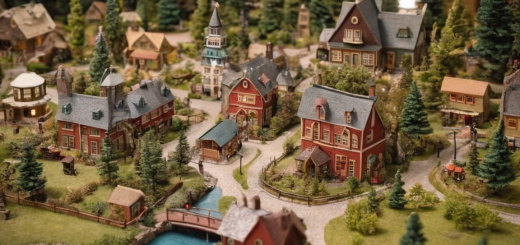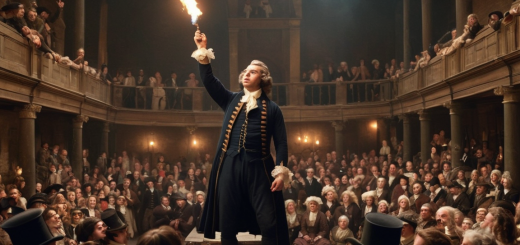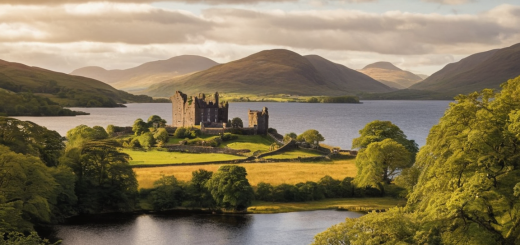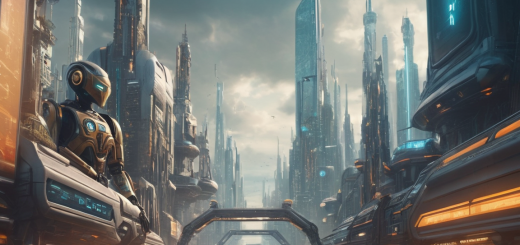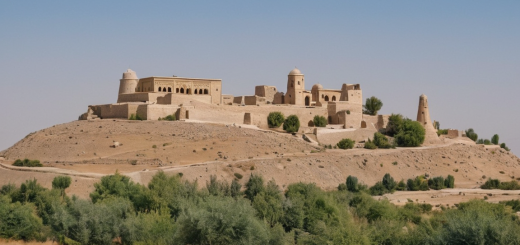Unveiling Vulcan: Exploring the Fascinating Mythology of Rome’s Divine Blacksmith
Unraveling the Mysteries of Vulcan, Rome’s God of Fire
The ancient Roman pantheon is rich with deities that have captivated the human imagination for centuries. Among these divine figures stands Vulcan, the god of fire, metalworking, and craftsmanship. His tale is not only one of mythical prowess but also a reflection of humanity’s age-old quest to understand and harness the elemental force of fire.
The Fiery Origins of Vulcan
According to Roman mythology, Vulcan was the son of Jupiter, the king of gods, and Juno, the goddess of marriage and childbirth. Despite his noble lineage, Vulcan’s own origin story is fraught with challenges and transformation.
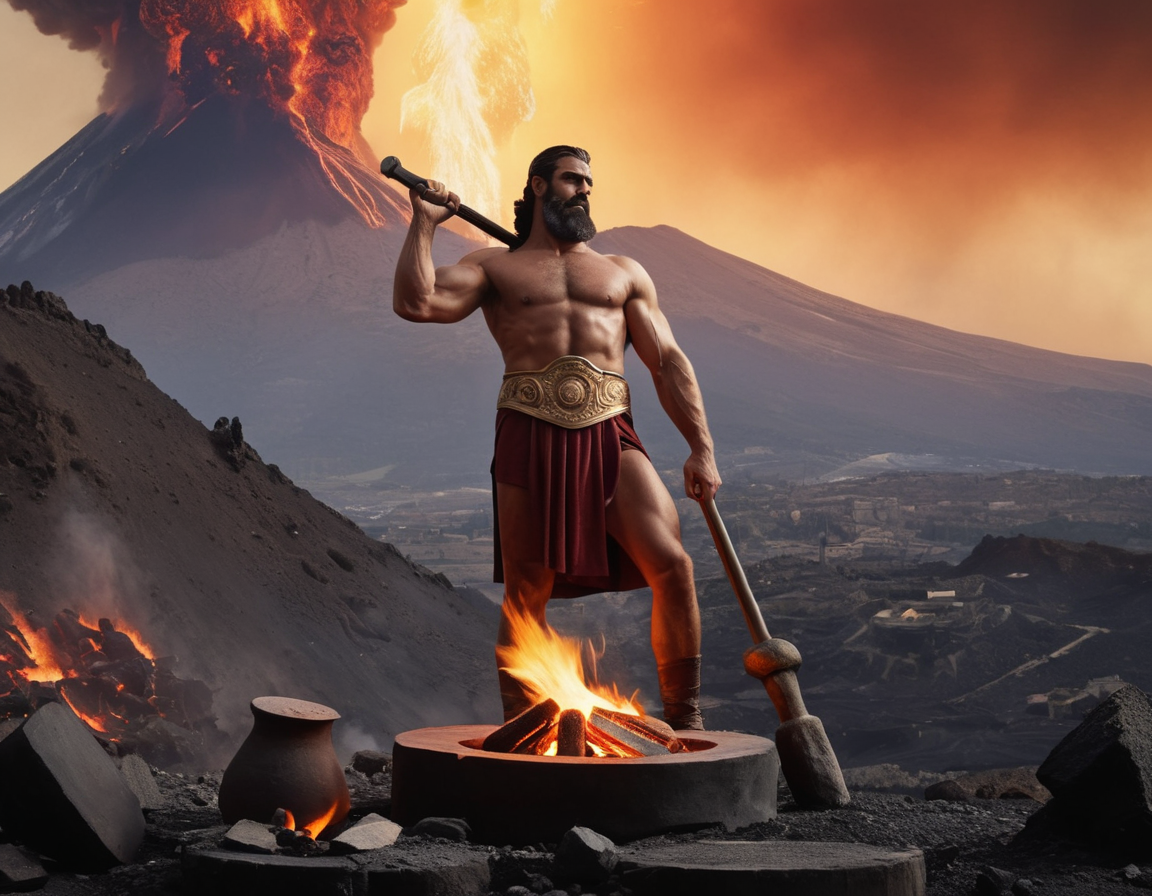
Vulcan’s Role in Roman Society
Vulcan’s significance extended beyond the mythological narratives and into the heart of Roman society. He was revered as the patron god of blacksmiths, artisans, and craftsmen. His forges were believed to be the creative hub where the weapons of gods and heroes were fashioned. Moreover, Vulcan was also associated with the destructive and regenerative power of volcanoes, a natural phenomenon that Romans witnessed with both awe and fear.
Feast of Vulcanalia
The Romans celebrated the festival of Vulcanalia on August 23rd to appease the god of fire and to protect their city from conflagrations, which were quite common during the hot summer months. This festival underscored the dual nature of fire, capable of both creation and destruction.
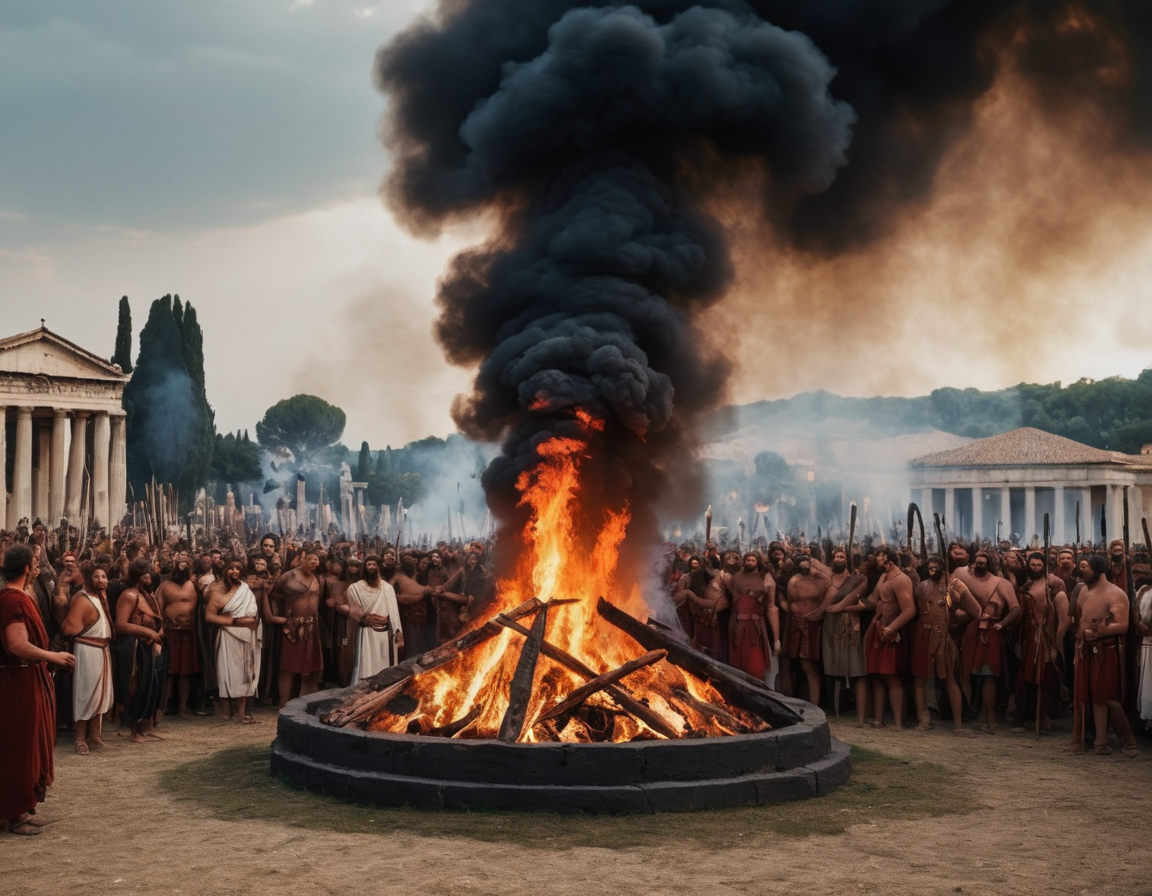
Artistic Representations and Cultural Impact
As with many mythological figures, Vulcan was a subject of fascination in art and literature. He has been depicted in a myriad of ways: from the master craftsman at his anvil to the humbled husband of Venus, the goddess of love and beauty.
His influence stretches across millennia, inspiring countless works and underscoring the timeless appeal of mythology in understanding human culture and natural phenomena. Indeed, Vulcan’s legacy serves as a bridge between the ancient and modern worlds, inviting us to explore the enduring tales of classical mythology.
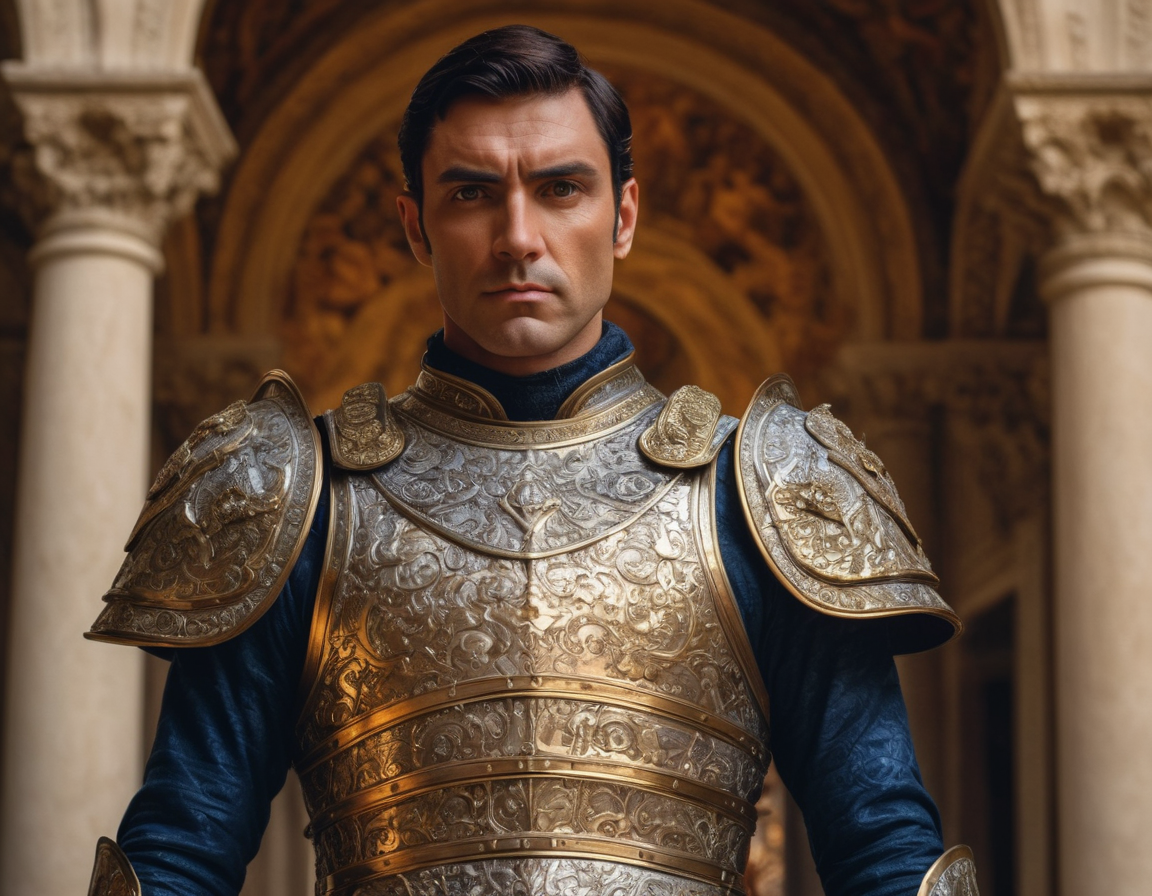
If you’re intrigued by the storied myths of the Roman empire, why not embark on your own exploration of these timeless tales? Dive deeper into the history, discover the symbols, and understand the cultural significance of gods like Vulcan, whose stories continue to light fires in the halls of our imagination.
Share your thoughts in the comments below and join the conversation about the enduring legacy of Roman mythology today!
